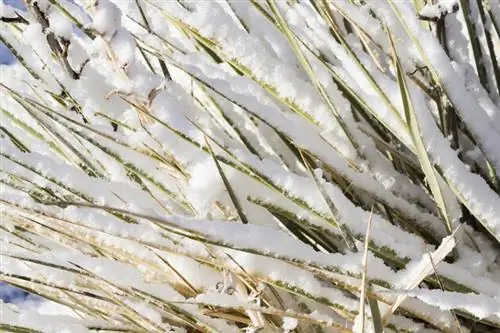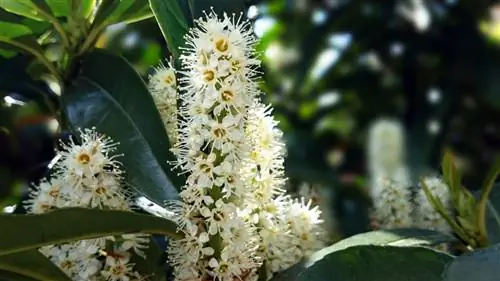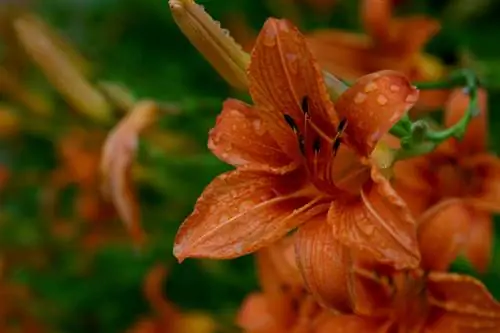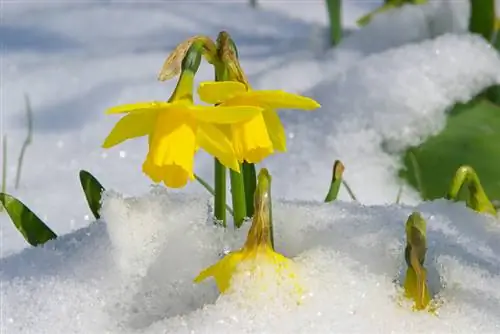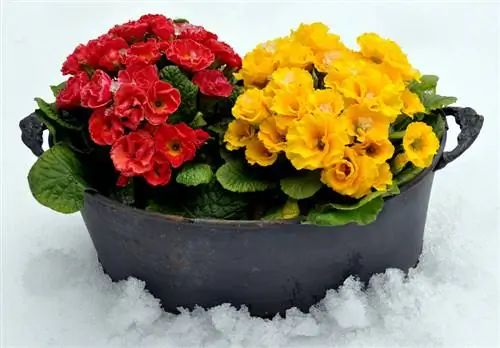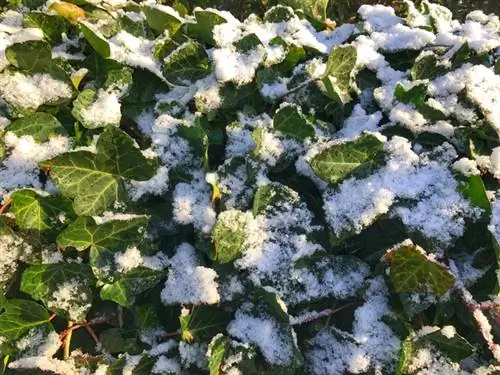- Author admin leonars@hobbygardeners.com.
- Public 2023-12-16 16:46.
- Last modified 2025-01-23 11:20.
There are around 50 different species of palm lily, which are very different due to their origin. Some tend to grow in mild coastal regions, others in harsh mountainous areas. There are palm lilies that are hardy and those that cannot tolerate frost.
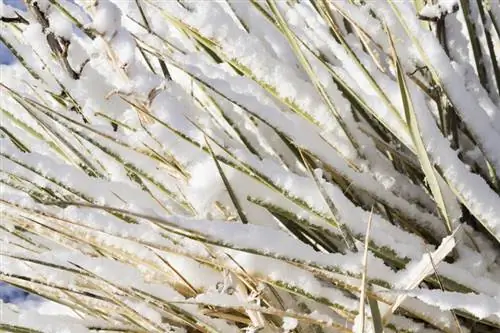
Are palm lilies hardy?
Some types of palm lilies are hardy, such as the candle palm lily (Yucca gloriosa), which can tolerate frost down to -20°C, or the filamentous palm lily (Yucca filamentosa), which is frost-resistant down to around -15°C. Nevertheless, they should be protected from prolonged frost and heavy rain.
Which types of palm lily can tolerate frost?
The candle palm lily (Yucca gloriosa), for example, is winter-proof; it can withstand frost down to -20 °C. This palm lily can easily be planted in the garden. Only during a long period of frost should it be given a little winter protection in the form of bark mulch or leaves. However, protection from too much water is much more important. It cannot tolerate either too much rain or waterlogging over a long period of time.
The filamentous palm lily (Yucca filamentosa) is also hardy to around -15 °C. It only needs winter protection at lower temperatures. It originally comes from North America and is just as easy to care for as the other palm lilies. It prefers to be sunny and warm, preferably on the south side of the house. The flowering period lasts approximately from June to October.
Give your Yucca filamentosa enough space, it reaches a diameter of a good one meter. The beautiful inflorescences grow up to three meters long. After flowering, cut off the inflorescences. The Yucca filamentosa does not like strong or cold winds. You should protect your plant well from this, especially in winter.
Overwintering potted plants
Since potted plants are generally much more sensitive to frost than plants in the garden bed, you should also protect them better. Wrap the plant with bubble wrap (€14.00 on Amazon) or special fleece that you can get from gardening stores. Overwintering in a greenhouse or winter garden is also recommended here.
Container plants generally do not grow as large as free-growing plants, so they do not require a lot of space in their winter quarters. Even in winter, water your palm lily whenever the soil becomes dry.
The most important things in brief:
- leave frost-hardy varieties in the garden
- protect from too much rain
- It is better to overwinter potted plants in a cool and dry place
- Do not keep houseplants too warm
Tips & Tricks
You should also protect a hardy palm lily from prolonged frost and heavy rain.

